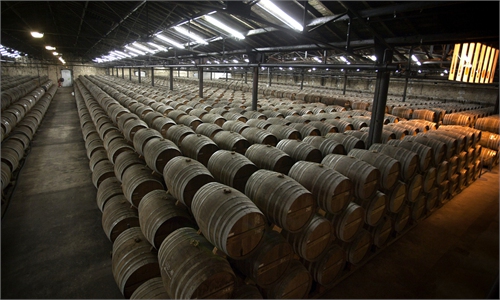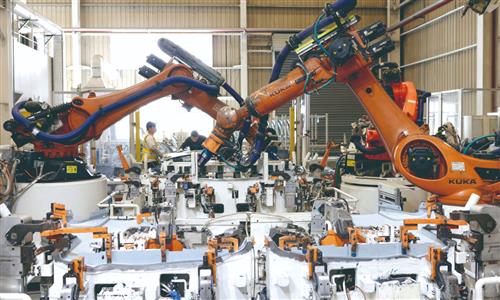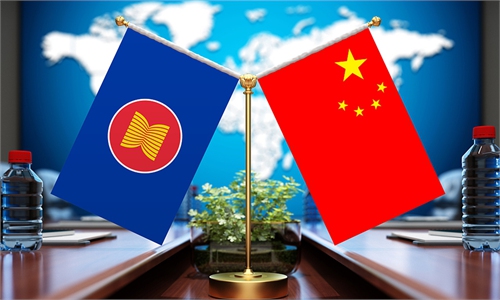Sino-Swiss FTA upgrade talks highlight importance of free trade confronting protectionism

Illustration: Xia Qing/GT
Trade protectionism and free trade represent two opposing approaches to international trade. It should be noted that, although protectionism has had an unprecedented impact on free trade, the latter has been proven as the easiest and most effective way to stimulate economic growth.China and Switzerland on Monday began negotiations on an upgrade of the Sino-Swiss free trade agreement (FTA). The FTA upgrade showcases the two countries' support for free trade and openness to the outside world, at a time when economic globalization is encountering headwinds, Chinese Minister of Commerce Wang Wentao was quoted by the Xinhua News Agency as saying.
The Sino-Swiss FTA was signed in July 2013 and came into effect in July 2014. In the past decade, bilateral trade has increased from $23.02 billion in 2014 to $59.5 billion in 2023, an expansion of about 2.6 times.
In this process, continuous efforts have been made by both sides to expand converging interests, promote trade facilitation, and bolster mutually beneficial cooperation in various fields such as green development and finance, thereby elevating bilateral economic and trade exchanges to a new level.
Now, although the official public attitude of the EU and European countries has always been to support economic globalization and trade liberalization, some people within Europe, in the face of the fast-rising competitiveness of Chinese enterprises, have become increasingly skeptical of free trade.
Their skepticism and concerns about free trade are unnecessary. Trade liberalization in the form of tariff cuts will help reduce trade barriers to export products, resulting in a mutually beneficial situation for multiple countries. The Sino-Swiss FTA is a typical example.
The Sino-Swiss FTA guarantees zero tariffs on 99.7 percent of Chinese exports to Switzerland and 84.2 percent of Swiss exports to China, significantly boosting bilateral trade.
Some studies have showed that both Chinese companies and Swiss enterprises saved more than $100 million in export costs in 2017, three years after the agreement took effect.
Switzerland is China's sixth-largest trading partner in Europe, and China is Switzerland's largest trading partner in Asia. In 2023, bilateral trade reached $59.5 billion, of which China's exports accounted for $5.74 billion and its imports from Switzerland for $53.76 billion. Switzerland has been maintaining a trade surplus.
Switzerland's main exports include electromechanical products, chemical and pharmaceutical products, optical instruments, medical equipment and watches.
China's main exports include textiles, electromechanical products, chemical raw materials, toys and sports equipment. This is determined by the industrial structures of the two countries.
Cross-border trade, under the theory of comparative advantage, brought prosperity to nations on the global commerce chain. China and European countries enjoy strong complementarity in strengthening cooperation.
Amid an atmosphere of trade liberalization, the comparative advantages of some European countries in high-tech industries can be tapped to enable an acceleration in the export growth of these countries, especially in high-end manufacturing and high value-added industries.
Many European countries may hope to achieve a trade surplus with China like Switzerland, so the most effective way is to push forward trade liberalization, encouraging Europe's advantageous industries to increase exports and achieve a win-win situation. That is preferable to taking protectionist measures to crack down on China's industries that enjoy comparative advantages, resulting in a lose-lose situation.
Over the past decade, the Sino-Swiss FTA has provided rich benefits for the two countries. China has the world's largest middle-income group and the second-largest consumer market, making the country a key market for global companies.
The Sino-Swiss FTA serves as a good example of why trade liberalization is so important, and European countries should oppose irrational protectionism and "decoupling." European countries' governments need to keep cool heads when it comes to surging domestic protectionism.
The author is a reporter with the Global Times. bizopinion@globaltimes.com.cn



